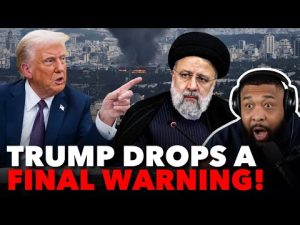In the latest twist of geopolitical drama, tensions in the Middle East have escalated as Israel continues to strike key Iranian infrastructure. This aggressive operation comes amid a backdrop of complex relationships between Iran, China, and the United States, stirring the pot of international relations once again. Over the past few days, Israeli forces have been busy diminishing Iran’s oil and gas capabilities, a move that some experts believe could significantly weaken both Iran and its ally, China, with whom it has recently formed tighter economic ties.
China has been a crucial buyer of Iranian oil, reportedly taking in more than 90% of Iran’s crude exports. This partnership has been something of a financial lifeline for Iran, allowing the regime to keep afloat in turbulent times. But as Israeli forces have successfully targeted these energy facilities, it raises an interesting question: How vulnerable is Iran really when its oil infrastructure can be subject to such decisive firepower? Analysts are beginning to suggest that Iran’s ability to fund military endeavors may soon dwindle, leading to a dangerous dynamic in the region.
On the diplomatic front, things are heating up as well. According to various reports, Israel has not ruled out targeting high-ranking officials within Iran’s regime, including its Supreme Leader, Ayatollah Khamenei. While some may argue that such a move could escalate conflicts to unforeseen levels, many believe that decisive action against figures like Khamenei could reshape the balance of power in the Middle East. Interestingly, even former President Trump’s recent comments at the G7 summit hint that the U.S. administration is treading carefully on this matter, advocating for a temporary negotiation period to find a less dramatic solution.
In the midst of these swirling tensions, it appears that Israeli Prime Minister Netanyahu and Trump may be adopting a strategic game plan reminiscent of old-school “good cop, bad cop.” While Trump seems to be holding out the olive branch of diplomacy for the moment, signaling a willingness to give Iran time to negotiate, Israeli forces are prepared to act if talks collapse. It’s a delicate dance, and one that keeps the entire world gripping its popcorn to see what will happen next. Should Israel decide to take decisive action against top Iranian leaders post-negotiation, the president’s expression of reluctance might serve to save face while still allowing a key ally to operate.
At the heart of this complicated narrative is the realization that the stakes are incredibly high. What happens in this region affects not only the countries involved but also international relationships on a grand scale. One misstep could lead to a domino effect of conflict that stretches far beyond the boundaries of the Middle East. As events continue to unfold, it begs the question: Can diplomacy prevail, or are we witnessing the beginning of a new chapter dominated by military actions? Only time will tell, and you can bet that the rest of the world is watching—with bated breath.







